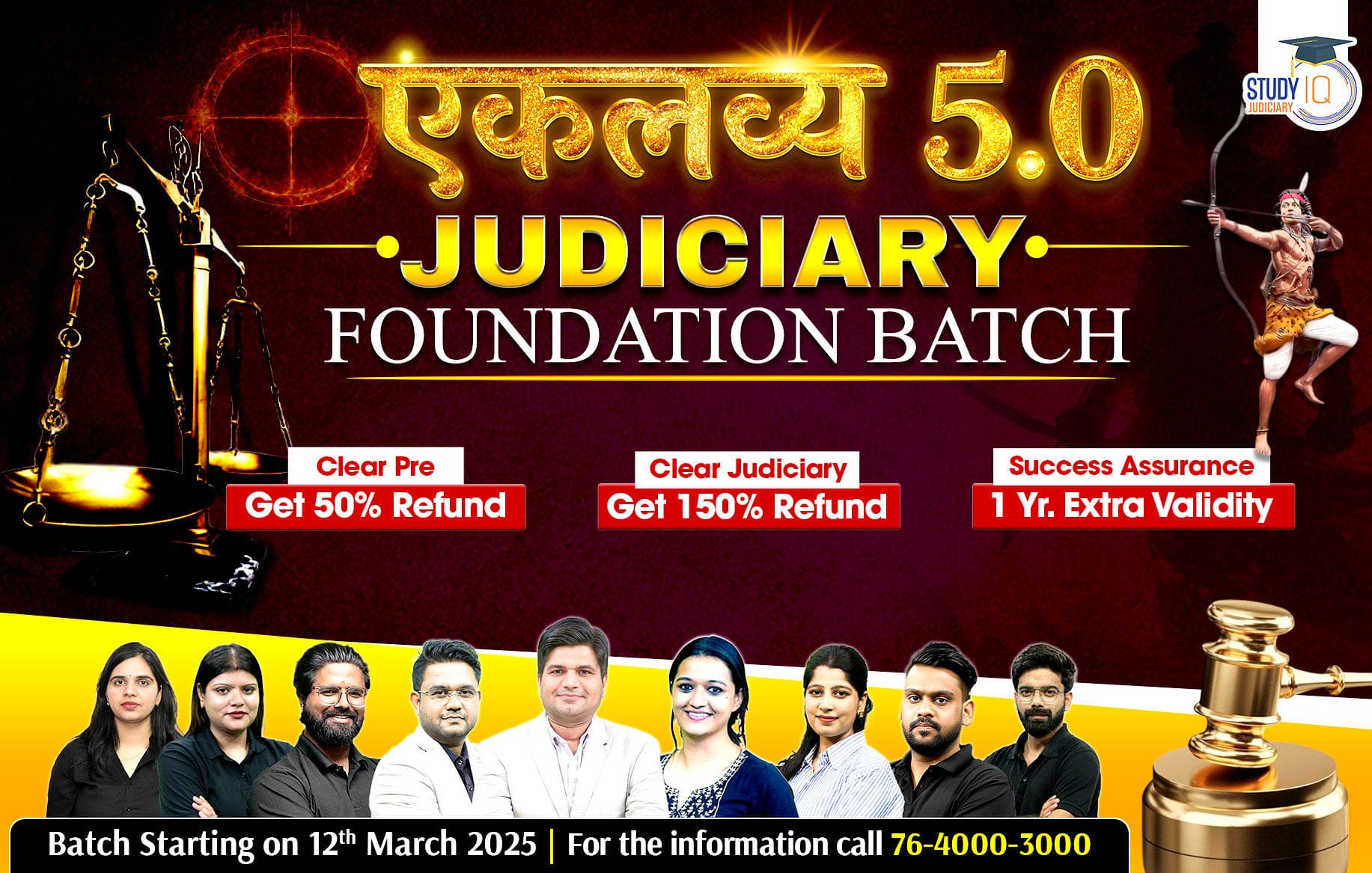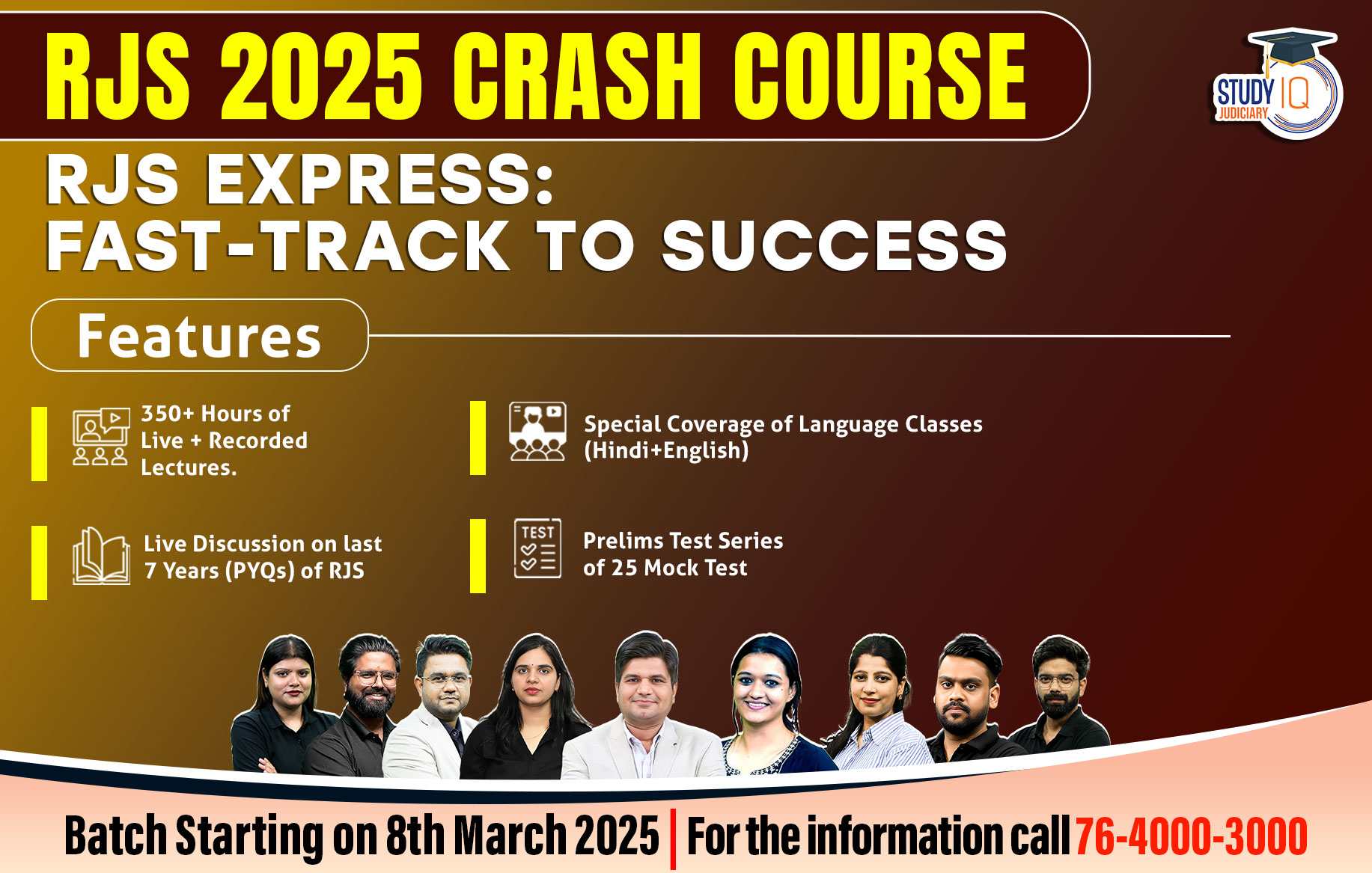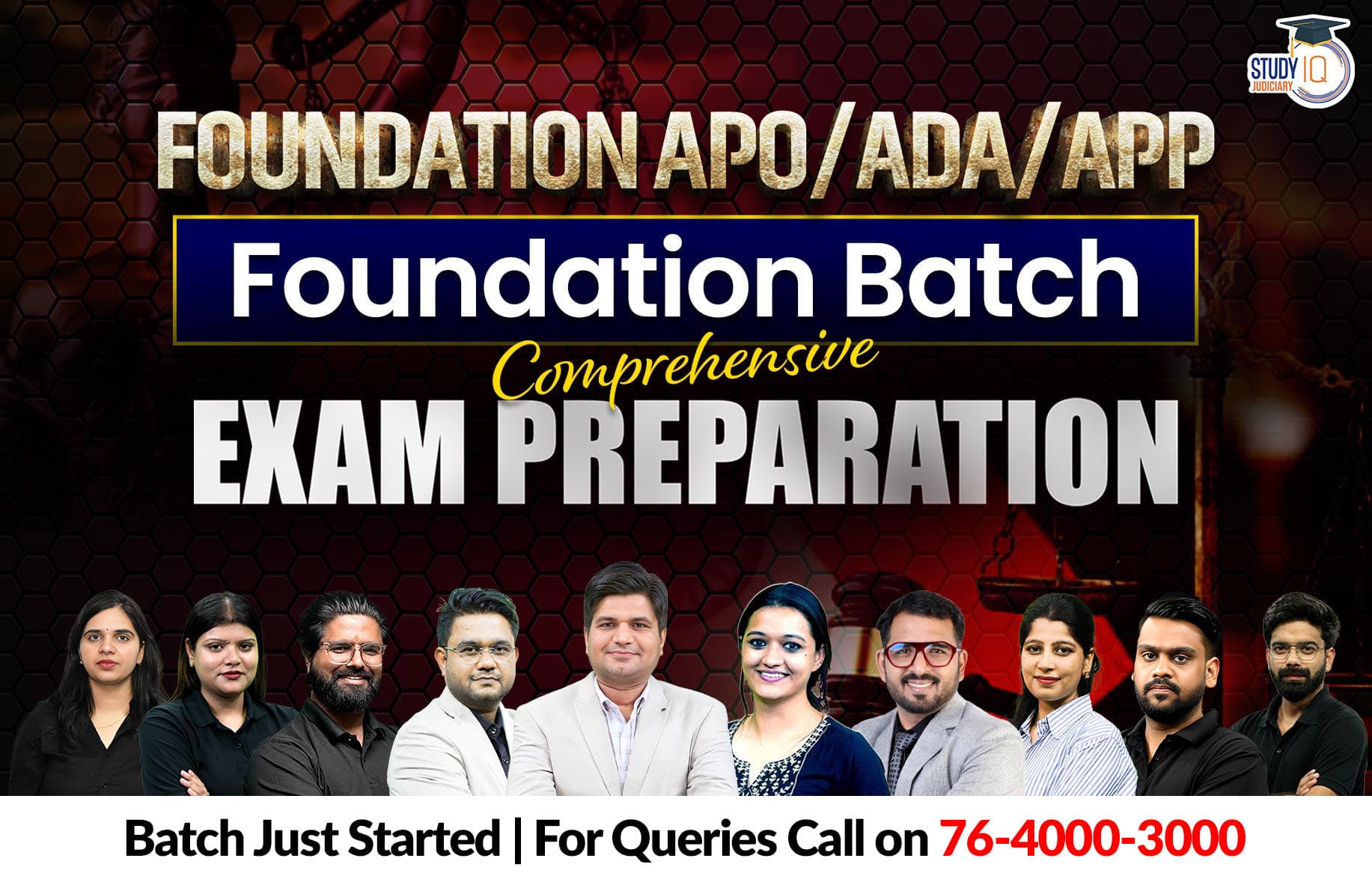Table of Contents
Gujarat Judiciary Exam 2025 is an examination to enter into the service of Civil Judge, Junior Division/Civil Judge, Junior Division by Gujarat Judicial Services. This test consists of three phases of tests, i.e., Preliminary Exam, Main Exam, and Viva-Voce or Interview. Gujarat High Court holds the examination and it has a syllabus for evaluation purposes. Candidates have to possess knowledge in many subjects such as law subjects, general knowledge, reasoning, and linguistic ability.
In this article, we will discuss the exam overview, detailed syllabus, and exam pattern to prepare the candidates effectively for the Gujarat Judicial Services Exam 2025.
Gujarat Judiciary Exam 2025
The Gujarat Judiciary Exam 2025 is a good opportunity for law graduates to join the judiciary. To crack the exam, it is essential to understand the exam pattern, syllabus, and selection process.
| Aspect | Details |
|---|---|
| Conducting Body | Gujarat High Court |
| Exam Name | Gujarat Judicial Services Exam 2025 |
| Post Name | Civil Judge |
| Total Vacancies | 212 |
| Mode of Application | Online |
| Application Start Date | February 1, 2025 |
| Application End Date | March 1, 2025 |
| Age Limit | Below 35 years (Relaxations for reserved categories) |
| Qualification | Bachelor’s Degree in Law |
| Selection Process | Preliminary Exam, Mains Exam, Viva-Voce (Interview) |
| Official Website | www.gujarathighcourt.nic.in |
Gujarat Judiciary Exam 2025 Selection Process
The selection process for the Gujarat Judiciary Exam 2025 involves three main stages:
- Preliminary Exam: An objective-type exam consisting of two papers—one on law and another on the Gujarati language. A negative marking of 0.33 marks per wrong answer is applicable.
- Mains Exam: The written exam will include two papers:
- Paper 1: Criminal Law
- Paper 2: Civil Law Candidates must score a minimum of 50% to proceed to the next stage.
- Viva-Voce (Interview): The viva-voce test is the final stage where candidates are assessed based on their knowledge of law, intellectual depth, ethics, and communication skills. The viva-voce carries 50 marks, and you need at least 40% to qualify.
Gujarat Judiciary Exam 2025 Exam Pattern
The exam pattern for both Prelims and Mains is as follows:
Preliminary Exam:
- Paper 1: Law – 100 questions (Duration: 2 hours)
- Paper 2: Gujarati Language – 50 questions (Duration: 30 minutes)
- Marking Scheme: 1 mark per question, 0.33 marks deduction for wrong answers.
Mains Exam:
- Paper 1: Criminal Law – 100 marks (Duration: 3 hours)
- Paper 2: Civil Law – 100 marks (Duration: 3 hours)
- Mode: Candidates can choose to take the exam in either English or Gujarati.
Viva-Voce:
- 50 marks (To be conducted after the Mains exam).
Gujarat Judiciary Exam 2025 Salary and Perks
The salary for a Civil Judge in Gujarat varies between ₹77,840 to ₹1,36,520 per month. Additionally, candidates are entitled to various allowances such as:
- House Rent Allowance (HRA)
- Dearness Allowance (DA)
- Travel Allowance (TA)
- Petrol Allowance
Gujrat Judiciary Examination 2025 Syllabus
Prelims Exam Syllabus
Part – A: Criminal Laws
| Subject |
|---|
| The Indian Penal Code, 1860 & Bhartiya Nyay Sanhita 2023 |
| The Code of Criminal Procedure, 1973 & Bhartiya Nagrik Suraksha Sanhita 2023 |
| The Indian Evidence Act, 1872 & Bhartiya Sakshya Adhiniyam 2023 |
| The Negotiable Instruments Act, 1881 |
| The Probation of Offenders’ Act, 1958 |
| The Juvenile Justice (Care and Protection of Children) Act, 2015 (JJ Act) |
| The Immoral Traffic (Prevention) Act, 1956 |
| Pre-conception and Pre-Natal Diagnostic Techniques (Prohibition of Sex Selection) Act, 1994 (PCPNDT Act) |
| The Protection of Women from Domestic Violence Act, 2005 (DVA) |
| The Protection of Children from Sexual Offence Act, 2012 (POCSO Act) |
| The Information Technology Act, 2000 (IT Act) |
| The Indecent Representation of Women (Prohibition) Act, 1986 |
| The Gujarat Prevention of Gambling Act, 1887 |
| The Gujarat Prohibition Act, 1949 |
| The Registration of Births and Deaths Act, 1969 |
Part – B: Civil Laws
| Subject |
|---|
| The Code of Civil Procedure, 1908 |
| The Limitation Act, 1963 |
| The Indian Contract Act, 1872 |
| The Constitution of India |
| The Indian Partnership Act, 1932 |
| The Specific Relief Act, 1963 |
| The Sale of Goods Act, 1930 |
| The Transfer of Property Act 1882 |
| The Arbitration and Conciliation Act, 1996 |
| Succession Laws, Personal Laws (Hindu, Muslim & Christian) |
| The Commercial Courts Act, 2015 |
| The Gujarat Court Fees Act, 2004 |
| Legal Maxims |
Part – C: General Knowledge
| Subject |
|---|
| General Knowledge |
| English Language |
| Test of Reasoning |
| Numerical & Mental Ability |
| Basics of Computer Applications |
Paper-II (For candidates without Gujarati as a subject in Secondary or Higher Secondary)
| Subject | Topics |
|---|---|
| Gujarati Language | (૧) ગગુજરરાતતીનનિબબંધલલેખનિ
(૨) ફકરરાઉપરથતીપ્રશશ્નોનિરાજવરાબ (૩) સમરાનિરાથર્થીશબ્દશ્નો (૪) નવરૂદરાથર્થીશબ્દશ્નો (૫) પત્રલલેખનિ (૬) ભરાષરાબંતર – અનિગુવરાદ (ગગુજરરાતતી – અબંગલેજીઅનિલેઅબંગલેજી – ગગુજરરાતતી) (૭) ટબંટકનિનોંધ (કશ્નોઈપણનવષયપર) (૮) ગગુજરરાતતીવ્યરાકરણ |
Mains Exam Syllabus
Paper-I (CRIMINAL)
| Subject |
|---|
| The Indian Penal Code, 1860 & The Bharatiya Nyaya Sanhita, 2023 |
| The Code of Criminal Procedure, 1973 & The Bharatiya Nagarik Suraksha Sanhita, 2023 |
| The Indian Evidence Act, 1872 & The Bharatiya Sakshya Adhiniyam, 2023 |
| The Gujarat Prohibition Act, 1949 |
| The Probation of Offenders’ Act, 1958 |
| The Juvenile Justice (Care and Protection of Children) Act, 2015 |
| The Protection of Women from Domestic Violence Act, 2005 |
| The Gujarat Prevention of Gambling Act, 1887 |
| The Immoral Traffic (Prevention) Act, 1956 |
| Pre-conception and Pre-Natal Diagnostic Techniques (Prohibition of Sex Selection) Act, 1994 |
| The Negotiable Instruments Act, 1881 |
| The Registration of Births and Deaths Act, 1969 |
| The Protection of Children from Sexual Offences Act, 2012 |
| The Information Technology Act, 2000 |
| The Indecent Representation of Women (Prohibition) Act |
Paper-II (CIVIL)
| Subject |
|---|
| The Code of Civil Procedure, 1908 |
| The Limitation Act, 1963 |
| The Indian Contract Act, 1872 |
| The Constitution of India |
| The Indian Partnership Act, 1932 |
| The Specific Relief Act, 1963 |
| The Gujarat Court Fees Act, 2004 |
| The Sale of Goods Act, 1930 |
| The Transfer of Property Act 1882 |
| The Arbitration and Conciliation Act, 1996 |
| The Commercial Courts, Act, 2015 |
| Succession Laws, Personal Laws (Hindu, Muslim & Christian) |
| Legal Maxims |
Language of Main Exam:
- Question Paper-I and Paper-II of Main Exam will be in English.
- Answers can be provided in English or Gujarati, unless specified otherwise.
Viva Voce (Oral Interview)
- Candidates who qualify for the Mains Exam will be called for the Viva Voce Test (50 Marks).
- Minimum qualifying marks: 40%.
- The Viva Voce assesses legal knowledge, mental alertness, judgment skills, ethics, communication skills, and overall suitability for the judiciary.
Conclusion
The Gujarat Judicial Service Exam is a competitive examination requiring strong preparation in law, reasoning, general awareness, language skills, and legal aptitude. Candidates should focus on the previous year’s question papers and mock tests to improve their performance.

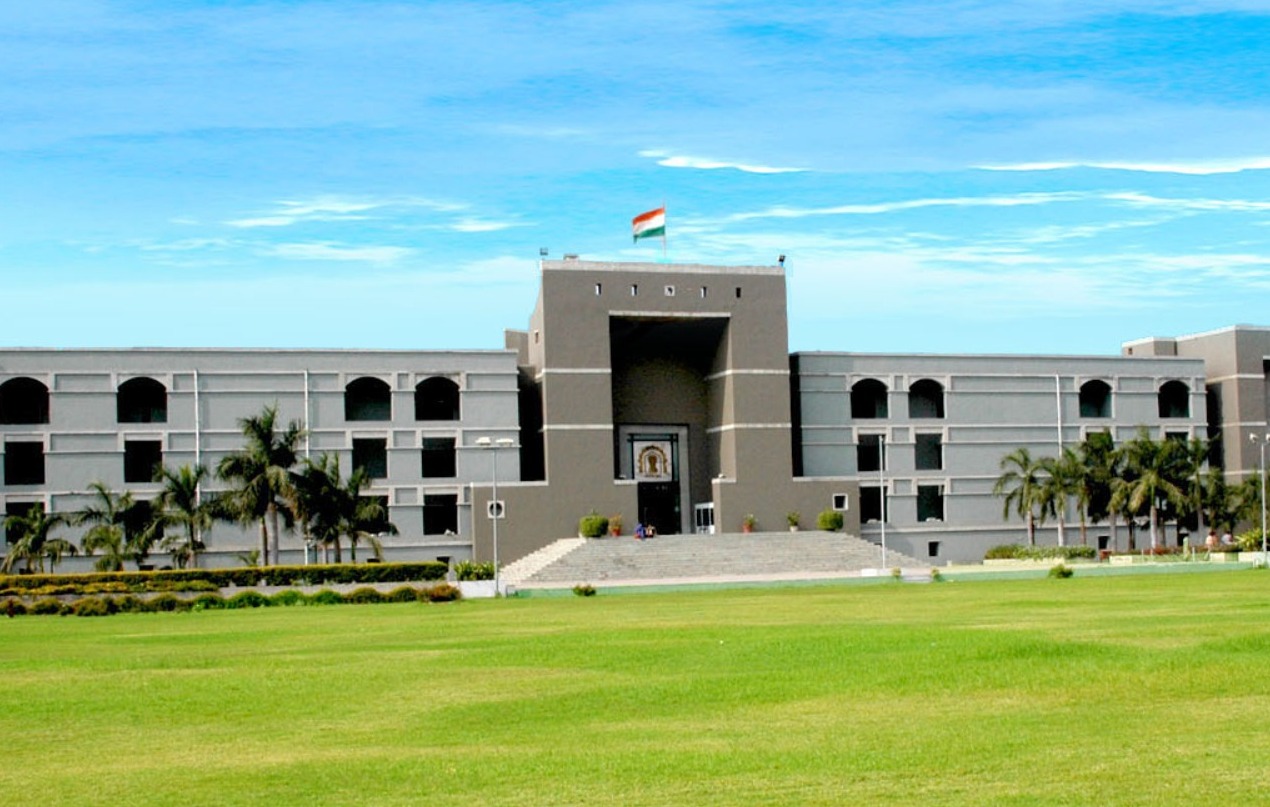
 Best Books for Judiciary Preparation by ...
Best Books for Judiciary Preparation by ...
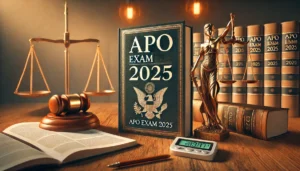 All State APO Exam 2025: Eligibility, Ex...
All State APO Exam 2025: Eligibility, Ex...
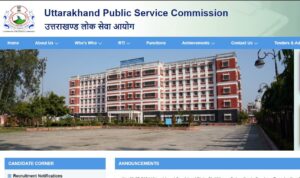 Uttarakhand Judiciary Syllabus 2025: Pre...
Uttarakhand Judiciary Syllabus 2025: Pre...
